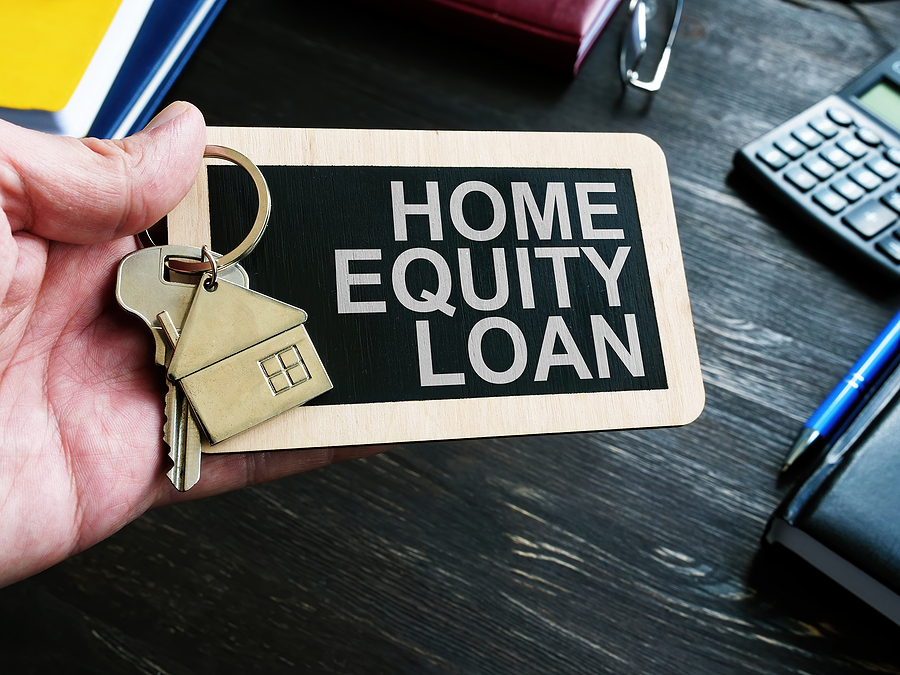Home Equity Loans: A Comprehensive Guide to Unlocking the Value of Your Home. Delve into the world of home equity loans and discover how they can empower you financially, providing a deeper understanding of their benefits, drawbacks, and the intricacies of the application process.
Harnessing the equity in your home, home equity loans offer a versatile financial solution for a wide range of needs. Whether it’s consolidating debt, funding home renovations, or pursuing educational endeavors, this guide will equip you with the knowledge to make informed decisions about utilizing this valuable asset.
Home Equity Loans: A Comprehensive Overview
Home equity loans are a type of secured loan that allows homeowners to borrow money against the equity they have built up in their homes. Unlike other loan types, such as personal loans or credit cards, home equity loans are secured by the borrower’s home, which means that the lender has a claim to the property if the borrower defaults on the loan.
Home equity loans can be used for a variety of purposes, including home improvements, debt consolidation, and education expenses. They can also be used to purchase a new home or to invest in a business.
Advantages of Home Equity Loans
- Lower interest rates than personal loans or credit cards
- Longer repayment terms, which can make monthly payments more affordable
- Tax-deductible interest (up to certain limits)
- Can be used for a variety of purposes
Disadvantages of Home Equity Loans
- Secured by the borrower’s home, which means that the lender can foreclose on the property if the borrower defaults on the loan
- Can have high closing costs
- May require a home appraisal, which can add to the cost of the loan
Eligibility and Application Process for Home Equity Loans

To qualify for a home equity loan, borrowers must meet certain eligibility criteria. These typically include:
- Homeownership:The applicant must own the home being used as collateral.
- Equity:The applicant must have sufficient equity in the home to secure the loan. This is typically calculated as the difference between the home’s market value and any outstanding mortgage balance.
- Income and creditworthiness:The applicant must have a stable income and a good credit score.
- Debt-to-income ratio:The applicant’s debt-to-income ratio (DTI) should be within the lender’s acceptable range.
The application process for a home equity loan typically involves the following steps:
- Pre-approval:The applicant can obtain pre-approval from a lender to determine the loan amount and interest rate they may qualify for.
- Formal application:The applicant completes a formal loan application, which includes providing financial documentation such as income statements, tax returns, and bank statements.
- Appraisal:The lender orders an appraisal to determine the home’s current market value.
- Loan approval:The lender reviews the application, appraisal, and other documentation to make a loan decision.
- Closing:If the loan is approved, the applicant signs the loan documents and receives the loan proceeds.
To improve the chances of loan approval, borrowers can:
- Build equity in their home by making extra mortgage payments or paying down other debts.
- Maintain a good credit score by paying bills on time and keeping credit utilization low.
- Reduce their debt-to-income ratio by paying down debt or increasing income.
- Shop around for the best interest rates and loan terms.
Understanding the Terms and Conditions of Home Equity Loans

Understanding the terms and conditions of home equity loans is crucial before applying for one. These loans are secured against your home’s equity, making it essential to be aware of the key terms and implications involved.
Interest Rates
Interest rates on home equity loans vary depending on factors such as your creditworthiness, loan-to-value (LTV) ratio, and the lender’s policies.*
-*Fixed Interest Rates
These rates remain constant throughout the loan term, providing stability in monthly payments.
-*Variable Interest Rates
These rates fluctuate with market conditions, leading to potential changes in monthly payments.
Understanding the type of interest rate and its impact on loan costs is essential for making informed decisions.
Loan-to-Value (LTV) Ratio, Home Equity Loans
The LTV ratio represents the percentage of your home’s value that the loan amount covers. Lenders typically set maximum LTV ratios to mitigate risk. A higher LTV ratio may result in higher interest rates and fees.
Repayment Options
Home equity loans offer various repayment options:*
-*Interest-Only Payments
Only the interest portion is paid during a specified period, followed by principal repayment.
-
-*Partially Amortizing Loans
A portion of the principal is paid each month, while the remaining balance is paid at the loan’s maturity.
-*Fully Amortizing Loans
Regular payments cover both interest and principal, gradually reducing the loan balance over the term.
Choosing the repayment option that aligns with your financial situation and goals is crucial.
Outcome Summary: Home Equity Loans

In conclusion, home equity loans present a powerful financial tool when used wisely. By carefully considering the eligibility criteria, terms, and potential risks involved, you can harness the equity in your home to achieve your financial goals. Remember, responsible borrowing and a clear understanding of the loan’s implications are key to unlocking the full potential of home equity loans.
Essential Questionnaire
What are the key advantages of home equity loans?
Home equity loans offer several advantages, including lower interest rates compared to personal loans, the ability to borrow larger sums of money, and the potential for tax deductions on the interest paid.
What factors affect my eligibility for a home equity loan?
Lenders typically consider factors such as your credit score, debt-to-income ratio, and the amount of equity you have in your home when determining your eligibility for a home equity loan.
How can I improve my chances of getting approved for a home equity loan?
To improve your chances of getting approved for a home equity loan, you can focus on building your credit score, reducing your debt-to-income ratio, and increasing the equity in your home.